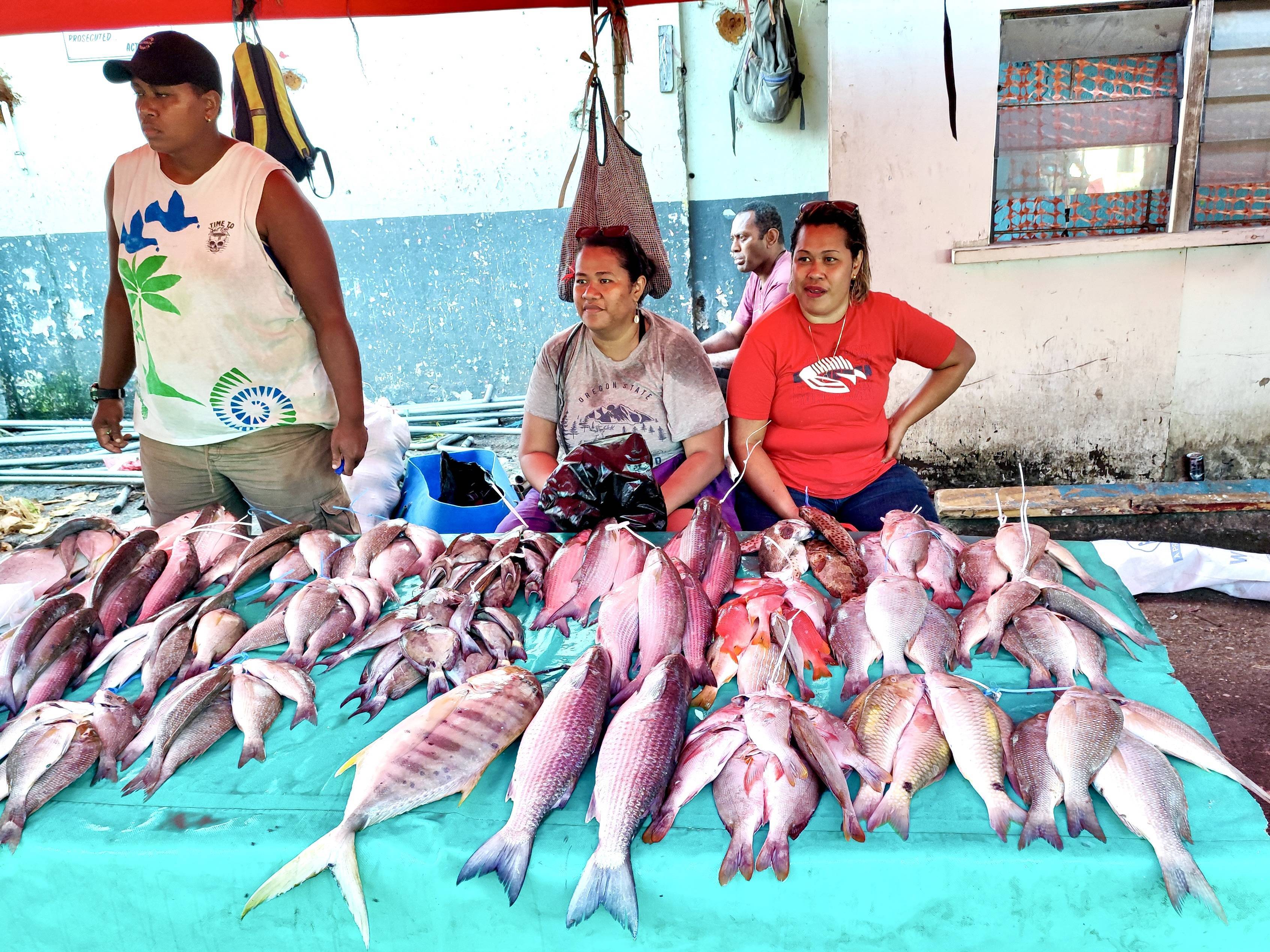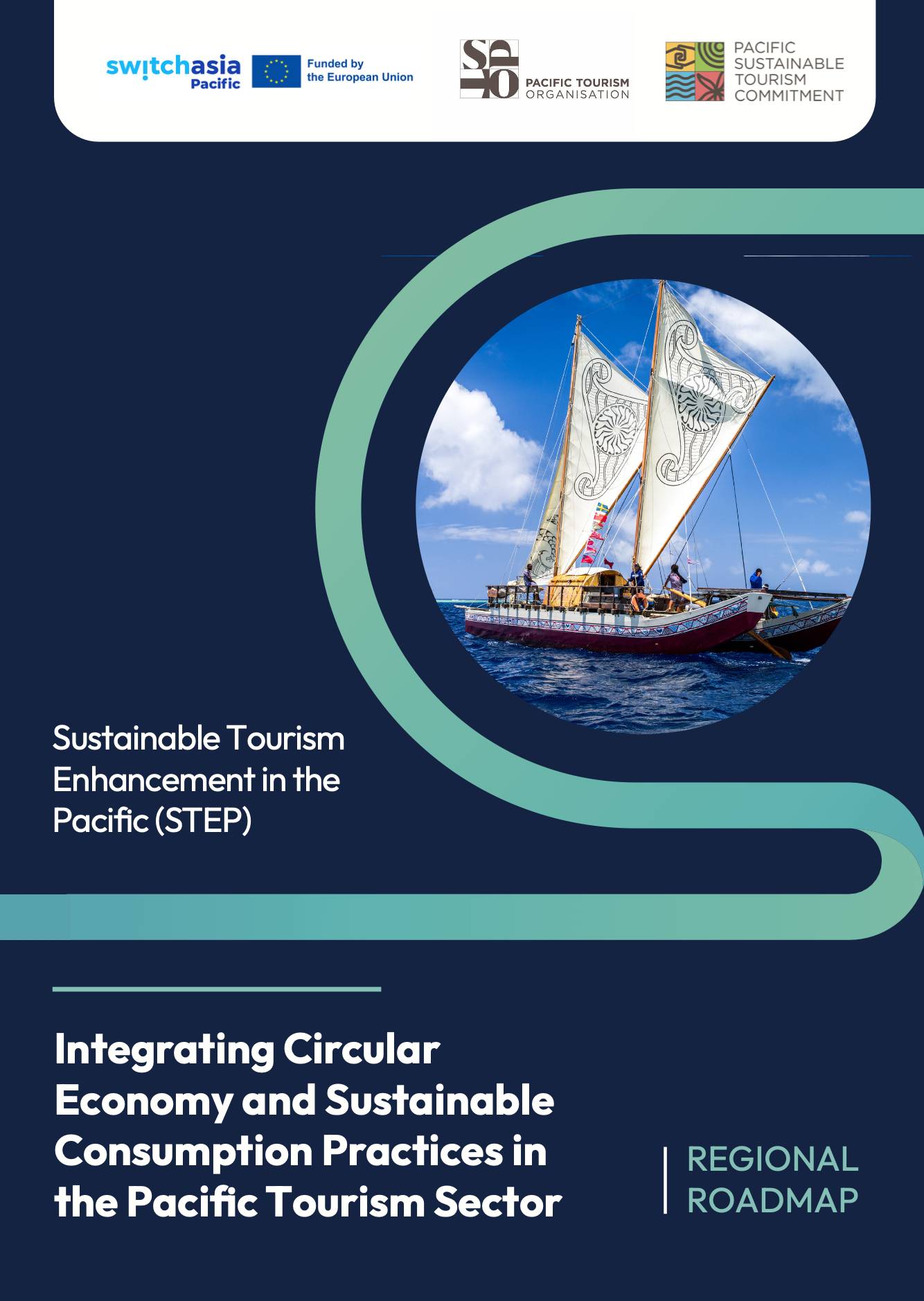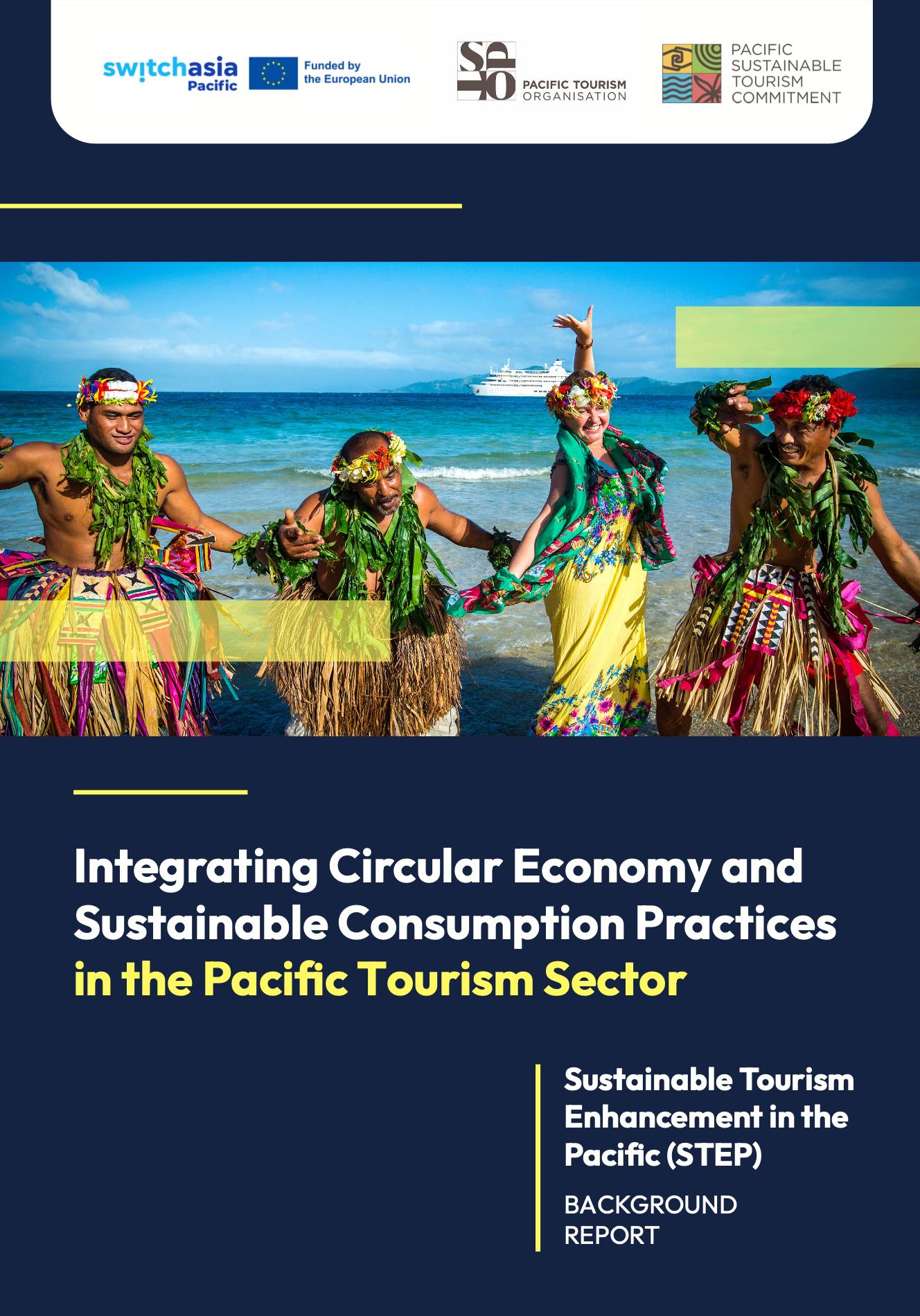
National SCP context and Connection to the Global Agenda: food system, tourism and resilience
The sustainable development principles underpinning the SDGs have long been the underlying principles for Fiji’s national development. Fiji’s 5-Year and 20-Year National Development Plans are the blueprints for Fiji’s continued development through 2030 and beyond.[1] The first Voluntary National Review was presented in 2019 at the High Level Political, which covered SDG12.[2] The Fiji National Adaptation Plan supports efforts to ensure SCP patterns through sustainable management and efficient use of natural resources and improved waste management.[3] Fiji has four main international multilateral environment agreements on addressing hazardous waste, namely the Montreal Protocol, Basel Convention, Stockholm Convention and the Rotterdam Convention.2 In 2023, Fiji launched its second Voluntary National Review, highlighting commendable progress in Target 12.2.[4] In addition, the National Sustainable Tourism Framework 2024 - 2034[5], serving as the successor plan to the Fijian Tourism 2021[6] Strategy has identified several key areas of intervention, including the improvement of food waste management, adoption of renewable energy technologies, and the implementation of programs and initiatives that benefit the communities where hotels and resorts are located.
Challenges
- Climate variability has increased the vulnerability of food production, especially for crops like cassava, a vital cash crop that is particularly sensitive to tropical cyclones.2
- Fiji has several SDG12 initiatives, but there is a lack of thorough monitoring to assess their effectiveness. Monitoring and regulating sustainable consumption and production patterns remain challenging.4
- Duly valuing blue carbon ecosystems, essential for combating climate change, providing support to local communities, and consolidating foundations for SCP, notably food production.
- Addressing food waste issues, which have largely been overlooked by both the government and civil society.4
- Limited and inconsistent circular and sustainability practices in the tourism sector, limited access to sustainable finance, infrastructure gaps in outer islands, and a need for stronger alignment between tourism operators, local suppliers, and national development objectives
- The global mismanagement of plastic waste has affected Fiji, with plastic waste increasingly contaminating the country’s shorelines and oceans.[7]
Priority sectors
- Fiji's growing economy has led to a rise in demand, which has encouraged the incorporation of several eco-friendly initiatives into its infrastructure development.2
- Establishing a sustainable finance mechanism to provide tailored financial support, grants, and investment-readiness assistance for MSMEs and Community Based Enterprises, in particular in the tourism sector
- Enhancing food supply chain efficiency and sustainability through upgrades to rural roads, municipal market enhancements, chillers, and cyclone-resistant roadside stalls. These efforts reduce transportation costs, food loss, and waste, while ensuring food access during extreme weather events.2
- Putting a focus on integrated solid waste management, green industry certification, and the improvement of production processes.2
- Recognizing tourism as a potential catalyst for development, it is crucial for the sector's growth to be sustainable.4
- Strengthening local supply chains and promoting circular procurement to boost domestic economies, resilience, and support for small producers and artisans.
- Developing national guidelines for climate-resilient tourism accommodation, tailored to Fiji’s diverse geographic and cultural settings, promoting low-impact design, renewable energy use, waste minimisation, and climate adaptation measures.
Opportunities
- Supporting their transition to promote green public procurement and eco-labeling, particularly for solar products, the government has facilitated this shift by reducing import duties on solar products to 0%.2
- Link local producers with tourism through coordinated procurement, digital traceability, and targeted marketing.
- Increasing public awareness about the significance of sustainable consumption and production practices.4
- Engaging in public awareness and advocacy efforts through media platforms and community outreach programs to promote recycling and composting initiatives.4
- Traditional knowledge, adding value for resilience and adaptability, connects modern services with communities and their historical ecological expertise on their ecosystems.
- Promote eco-tourism by advancing circular economy, sustainable consumption and production, and agritourism strategies.
- Enhance Fiji’s profile as a trusted destination for responsible travel in the Pacific, including improved access to ‘Made in Fiji’ products, particularly in outer islands and rural areas
- Developing national sustainable tourism standards, aligning with national goals and regional standards for collective impact
[1] Ministry of Economy. (2017). 5-year & 20-year National Development Plan
[2] Government of the Republic of Fiji. (2019). Fiji First Voluntary National Review
[3] Government of the Republic of Fiji. (2018). Republic of Fiji National Adaptation Plan
[4] Government of the Republic of Fiji. (2023). Fiji Second Voluntary National Review
[5] Government of the Republic of Fiji. (2024). National Sustainable Tourism Framework 2024 - 2034
[6] Government of the Republic of Fiji. (2021). Fijian Tourism 2021
[7] UNEP. (2012). Fiji taps into nature-based solutions to boost its ecosystems and economy






